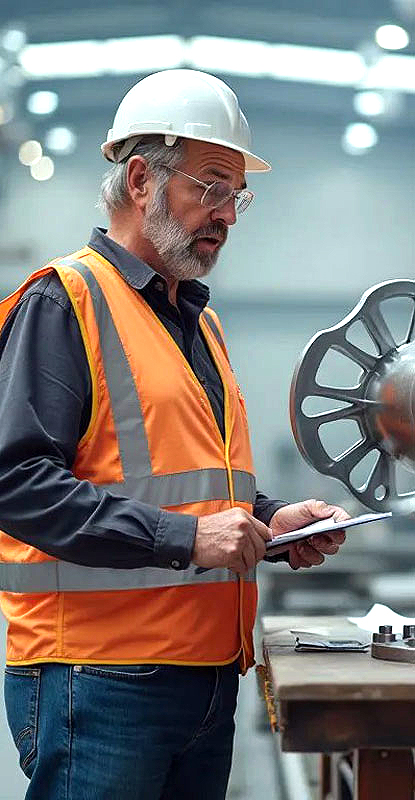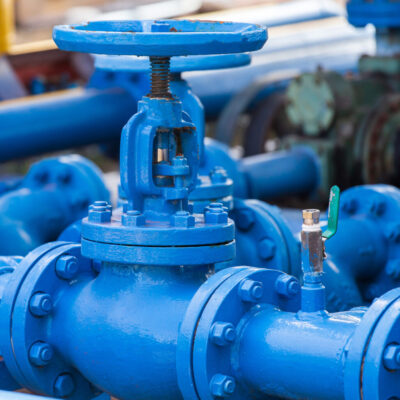Specialized Quality Assurance for Critical Industrial Components
Our PVF testing services at IMV ensure component quality through collaboration with producing factories and third-party laboratories across Asia. Our reliable, extensive network delivers specialized PVF testing services that help manufacturers meet the required critical safety and performance requirements.
Comprehensive PVF Quality Verification Services
Radiographic technology reveals internal characteristics through penetrating radiation. When directed through metal components, this advanced approach creates detailed images of internal structures, helping identify variations that could affect performance. Through third party PVF inspection protocols, this non-destructive approach proves particularly valuable for critical components in high-pressure environments. The detailed imaging process enables thorough examination of internal structures, ensuring comprehensive quality verification.
Magnetic particle and ultrasonic technologies complement each other in material evaluation. Magnetic approaches reveal surface conditions, while ultrasonic waves travel through materials to map internal features. These physics-based procedures provide detailed information about component integrity without altering the material structure. Our third party PVF testing services ensure comprehensive evaluation. The combination of these technologies provides multi-layered verification of component quality.
Charpy impact measurement determines material toughness and durability. This fundamental procedure helps predict how materials respond under sudden stress, particularly important in extreme operating conditions. Through comprehensive PVF testing services, components undergo rigorous evaluation to ensure reliability. The systematic testing process validates material performance under various stress conditions.
Positive material identification confirms exact composition requirements. Modern analytical instruments provide precise data about material makeup, helping ensure components meet specifications. This capability proves essential in industries where material substitution could compromise safety or performance. Our detailed analysis procedures verify material composition with high precision.
API standards guide critical safety requirements. API607 and API6A fire-safe protocols address crucial safety concerns in high-risk environments. These standards ensure components maintain integrity during extreme temperature events. API 624 low-emission requirements focus on environmental protection, helping facilities meet regulations while maintaining operational efficiency. Each standard requires specific testing protocols and documentation procedures.
Cryogenic pressure capabilities evaluate performance in extremely cold conditions. This specialized approach assesses how materials behave at very low temperatures, crucial for operations involving liquefied gases or cold-climate applications. The testing process incorporates precise temperature control and monitoring systems.
Welding procedure qualification ensures joining integrity, helping prevent common points of failure in industrial components. Hardness surveys provide additional data about material characteristics and performance capabilities. These evaluations follow strict procedural guidelines to ensure consistent results.
The role of these capabilities extends beyond basic compliance. In oil and gas operations, component integrity directly affects safety and environmental protection. Chemical processing facilities rely on component integrity to maintain safe operations, while power generation demands exceptional reliability under challenging conditions.

Industrial Quality Control Excellence
These fundamental procedures we strictly observe, support overall quality management by confirming material specifications, documenting component integrity, and maintaining compliance records. The physics behind these approaches demonstrates their value – penetrating radiation reveals internal features, magnetic fields interact with surface conditions, and ultrasonic waves map internal structures. Each testing method follows documented protocols to ensure reliable, repeatable results.
Contact IMV to learn how our specialized PVF testing services can enhance component reliability in your operations. Our network of qualified test areas helps ensure consistent results that meet industry requirements.


